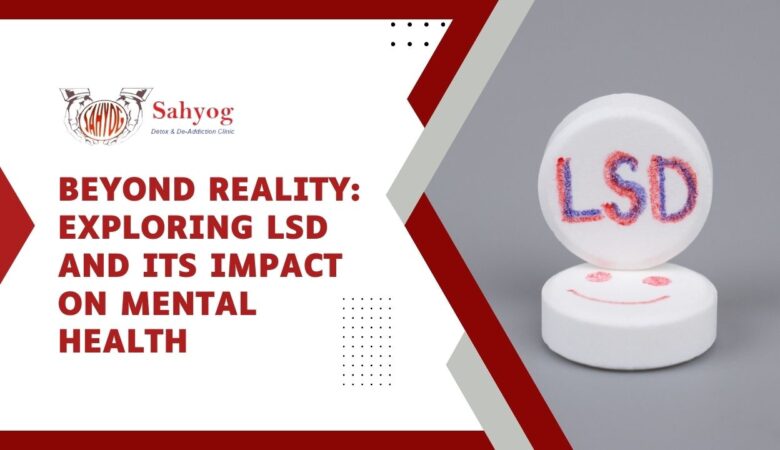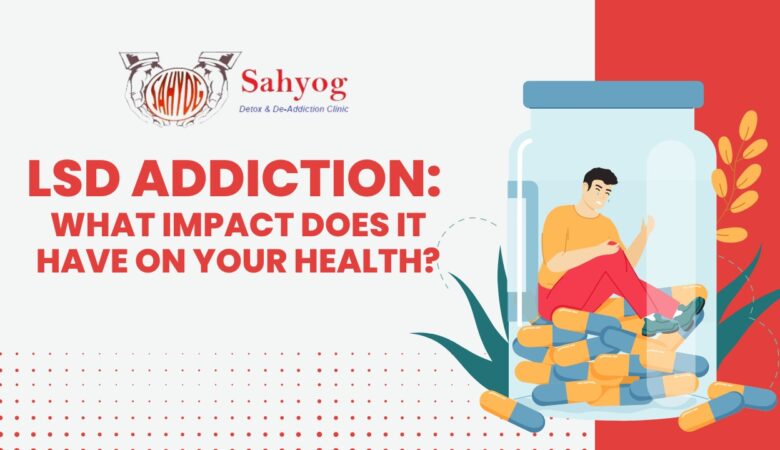Beyond Reality: Exploring LSD and its Impact on Mental Health
Welcome to a mind-bending exploration of the extraordinary world of LSD! Prepare to embark on a journey beyond reality as we delve into the depths of this fascinating substance and its impact on mental health. LSD, short for lysergic acid diethylamide, has long been shrouded in mystery and controversy. From its humble beginnings in the laboratories of Swiss chemist Albert Hofmann to its notorious association with counterculture movements in the 1960s, LSD has captured our collective imagination like no other drug. In this blog post, we will uncover the history behind LSD, understand how it affects the brain, examine its potential benefits and drawbacks for mental health, and ultimately explore whether this psychedelic compound holds any promise for transforming our understanding of consciousness itself. So strap in and get ready for an eye-opening adventure into uncharted territory – let’s dive deep into exploring LSD! What is LSD? LSD, or lysergic acid diethylamide, is a potent psychedelic drug that has the power to alter perception and consciousness. It was first synthesized in 1938 by Swiss chemist Albert Hofmann while working for Sandoz Pharmaceuticals. Initially, LSD was developed as a potential treatment for respiratory ailments, but its mind-altering effects soon caught the attention of researchers and psychologists. The chemical structure of LSD closely resembles serotonin, a neurotransmitter responsible for regulating mood, appetite, and sleep. When consumed, LSD binds to serotonin receptors in the brain, leading to an increase in dopamine levels and altering neural activity. This results in profound changes in sensory perceptions such as visuals becoming more intense and distorted. One of the key characteristics of LSD is its ability to induce what users often describe as “trips” or psychedelic experiences. These trips can be highly subjective and vary from person to person; they can range from euphoria and spiritual insights to anxiety and paranoia. The effects usually begin within 30-90 minutes after ingestion and can last up to 12 hours. It’s important to note that due to its powerful nature, LSD should only be taken under controlled settings with proper guidance. Recreational use without understanding the risks involved can lead to adverse psychological reactions or “bad trips.” Moreover, individuals with pre-existing mental health conditions are advised against using LSD as it may exacerbate their symptoms. In recent years, research into the therapeutic potential of psychedelics like LSD has resurfaced after being stifled for decades due to legal restrictions. Preliminary studies suggest that supervised use of psychedelics may have positive outcomes when used alongside therapy for conditions such as depression or PTSD. While much remains unknown about this enigmatic substance’s long-term effects on mental health and well-being, one thing is certain: exploring the realm of LSD opens doors to new perspectives on human consciousness – challenging our understanding of reality itself. The History of LSD LSD, also known as lysergic acid diethylamide, has a fascinating and complex history. It was first synthesized in 1938 by Swiss chemist Albert Hofmann while working at Sandoz Laboratories. However, its psychoactive effects were not discovered until five years later when Hofmann accidentally ingested a small amount of the substance. In the 1950s and 1960s, LSD gained popularity as a tool for psychiatric research and therapy. Psychologists believed that it had potential therapeutic benefits for treating various mental health conditions, including depression and anxiety. The counterculture movement of the 1960s further popularized LSD, with many individuals experimenting with its mind-altering effects to explore spirituality and expand their consciousness. However, due to concerns about its safety and unpredictable nature, LSD was classified as an illegal drug in the United States in 1970. This move effectively halted most scientific research into its therapeutic potential. Despite being banned for recreational use, some researchers have continued studying LSD’s impact on mental health in recent years. These studies aim to better understand how it affects brain function and explore potential applications for treating conditions such as PTSD or addiction. While there is still much we don’t know about how LSD interacts with our brains and mental health, ongoing research offers hope for discovering new treatments or insights into human consciousness. It’s important to note that despite its intriguing history and potential benefits, using LSD can also come with risks. The unregulated nature of street drugs means users may unknowingly consume substances laced with other harmful chemicals. Additionally, taking high doses of LSD can lead to intense hallucinations or “bad trips” which may cause severe psychological distress. Understanding the history of LSD provides valuable context for exploring its impact on mental health today. Ongoing research will hopefully shed more light on this enigmatic substance’s potential benefits while addressing any associated risks responsibly. How LSD Affects the Brain How does LSD impact the brain? It’s a question that has fascinated scientists and researchers for decades. LSD, also known as acid, is a powerful hallucinogenic drug that can cause profound changes in perception, thoughts, and emotions. When ingested, LSD binds to serotonin receptors in the brain, particularly those in the prefrontal cortex. This region of the brain is responsible for cognition, mood regulation, and perception. By binding to these receptors, LSD disrupts normal communication between brain cells. One of the key effects of LSD on the brain is an increase in neural connectivity. This means that different regions of the brain start communicating with each other more effectively. As a result, individuals may experience altered states of consciousness and sensory distortions. LSD also affects levels of neurotransmitters such as dopamine and serotonin. These chemicals play important roles in regulating mood and emotions. By altering their levels in the brain, LSD can induce intense emotional experiences ranging from euphoria to anxiety or even paranoia. Furthermore, research suggests that long-term use or high doses of LSD may lead to structural changes in certain areas of the brain. For example, studies have shown reduced gray matter density in regions involved in emotion processing and memory formation. While there are still many mysteries surrounding how exactly LSD affects the brain’s intricate networks and functions, it is clear


